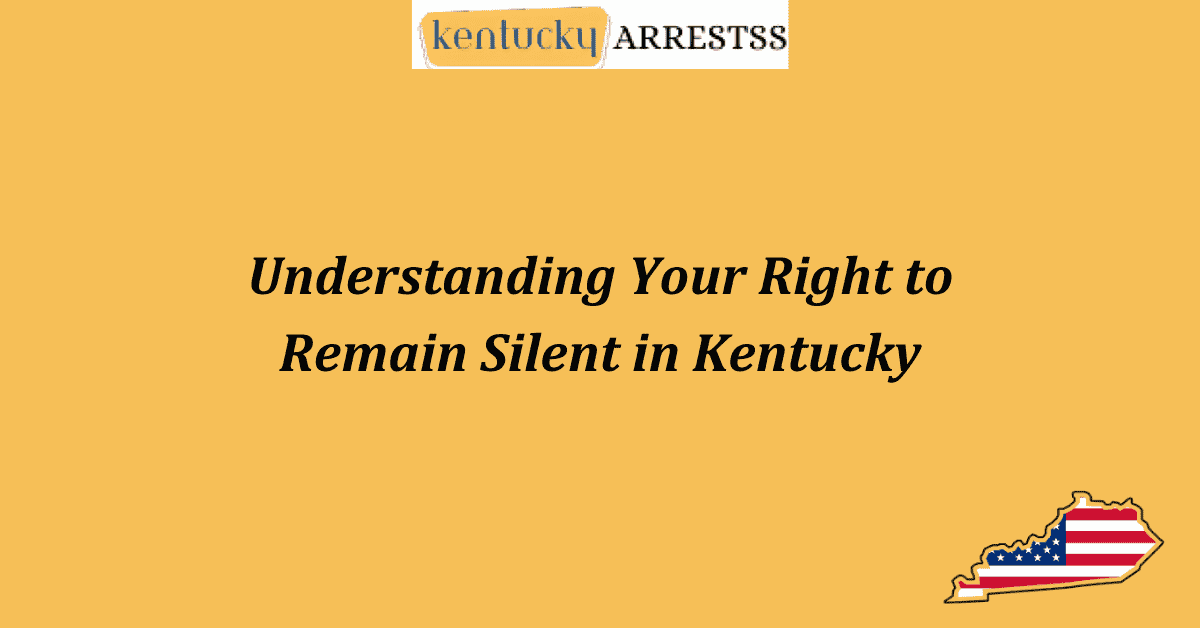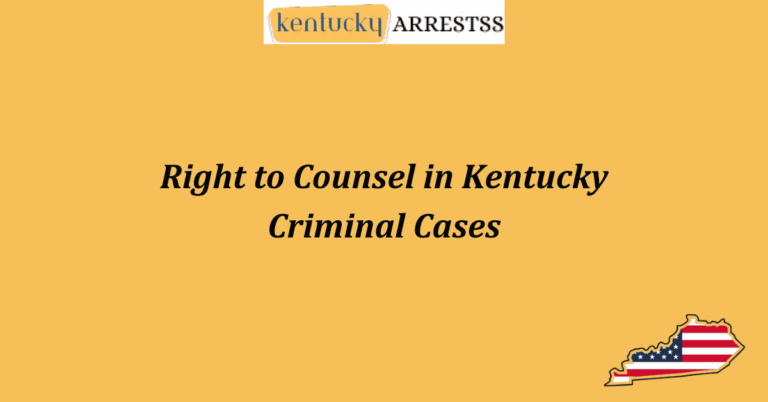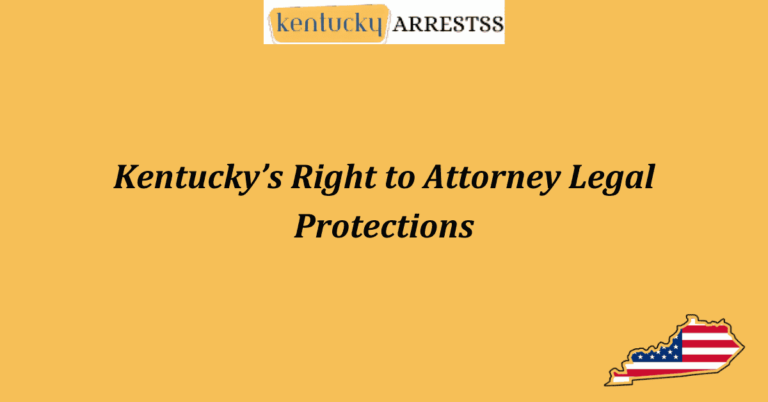Understanding Your Right to Remain Silent in Kentucky
When interacting with law enforcement in Kentucky, it is crucial to be aware of your right to remain silent. This fundamental right ensures that you do not have to incriminate yourself during questioning. By understanding and exercising this right, individuals can protect themselves and avoid potentially harmful situations. Knowing how to assert your right to remain silent can make a significant difference in legal proceedings and interactions with authorities.
In Kentucky, the right to remain silent is enshrined in the state’s laws and the U.S. Constitution. This legal protection allows individuals to refrain from providing important information that could be used against them in court. By grasping the importance of this right and how it applies in various situations, residents of Kentucky can navigate encounters with law enforcement more effectively. Understanding your right to remain silent is an essential aspect of safeguarding your legal rights and ensuring fair treatment under the law.
Importance of Knowing Your Rights in Legal Matters
When it comes to legal matters, it is crucial to have a solid understanding of your rights. One of the most fundamental rights you have is the right to remain silent. Knowing how and when to assert this right can make a significant impact on the outcome of any legal situation you may find yourself in. In Kentucky, like in all states, the right to remain silent is protected by the Fifth Amendment of the United States Constitution.
Explanation of the Right to Remain Silent
The right to remain silent, also known as the Miranda rights, gives you the power to refuse to answer any questions posed by law enforcement or other authorities. This right is designed to protect individuals from self-incrimination and ensure a fair legal process. By remaining silent, you can avoid saying anything that could be used against you in a court of law.
Benefits of Exercising Your Right to Stay Silent
Exercising your right to remain silent can have numerous benefits. By not speaking to authorities without legal representation present, you can avoid making potentially self-incriminating statements. This can protect your best interests and help you navigate legal situations more effectively. It is essential to remember that you have the right to remain silent, and you should not feel pressured to speak if you do not wish to do so.
How to Assert Your Right to Remain Silent
If you find yourself in a legal situation where you feel the need to remain silent, it is important to clearly and confidently assert your right to do so. You can simply state, “”I am invoking my right to remain silent,”” and then refrain from answering any further questions. It is crucial to remain calm and respectful while asserting this right to avoid any misunderstandings or escalation of the situation.
Avoiding Self-Incrimination in Legal Situations
Self-incrimination occurs when an individual says or does something that could be used as evidence against them in a legal proceeding. By exercising your right to remain silent, you can prevent self-incrimination and protect yourself from unintentionally providing information that could harm your case. It is always better to err on the side of caution and stay silent when in doubt.
Importance of Using Your Right Wisely
Using your right to remain silent wisely can significantly impact the outcome of any legal matter you may be involved in. By consulting with a legal professional and understanding when it is appropriate to remain silent, you can protect your rights and ensure a fair legal process. It is essential to be informed and proactive when it comes to asserting your rights in any legal situation.
Protecting Your Best Interests Through Silence
Remaining silent in legal situations is not a sign of guilt but rather a strategic decision to protect your best interests. By refraining from speaking until you have consulted with legal counsel, you can avoid potential pitfalls and ensure that your rights are upheld throughout the legal process. Your silence can speak volumes and help you navigate complex legal matters with confidence.
Ensuring a Fair Legal Process in Kentucky
By understanding and exercising your right to remain silent in Kentucky, you can contribute to a fair and just legal process. The right to remain silent is a fundamental protection afforded to all individuals, and knowing how to assert this right can make a significant difference in the outcome of any legal matter. By staying informed, proactive, and assertive, you can navigate legal situations with confidence and protect your rights effectively.
Frequently Asked Questions
Our Frequently Asked Questions section aims to provide comprehensive information on your right to remain silent in Kentucky. Below are detailed answers to common queries related to this topic.
What does the right to remain silent mean?
The right to remain silent is a fundamental right protected by the Fifth Amendment of the United States Constitution. It allows individuals to refuse to answer questions posed by law enforcement or other authorities in order to avoid self-incrimination.
When should I invoke my right to remain silent?
You have the right to remain silent at any point during interactions with law enforcement, whether you are being questioned at the scene of a crime, during an arrest, or while in custody. It is important to clearly and unequivocally state that you are invoking your right to remain silent.
Do I have to say anything to the police if I am arrested?
While you are required to provide basic identifying information such as your name and address, you are not obligated to answer any further questions without the presence of your attorney. It is advisable to invoke your right to remain silent until you have legal representation.
Can my silence be used against me in court?
Your decision to remain silent cannot be used against you as evidence of guilt in a court of law. The prosecution is prohibited from using your silence as a sign of guilt, and the jury must be instructed not to draw any negative inferences from your decision to exercise this right.
What if cops keep asking me stuff after I said I’m shutting up?
If law enforcement persists in questioning you after you have clearly stated that you are invoking your right to remain silent, you should remain steadfast in your refusal to answer any questions. It is important to stay calm and assertive while reiterating your right to remain silent until you have legal representation present.
How do I make sure I can stay quiet when dealing with cops?
To safeguard your right to remain silent, it is essential to be aware of this right and assert it clearly and confidently when interacting with law enforcement. It is recommended to seek legal counsel if you anticipate being questioned by authorities to ensure that your rights are upheld throughout the process.






